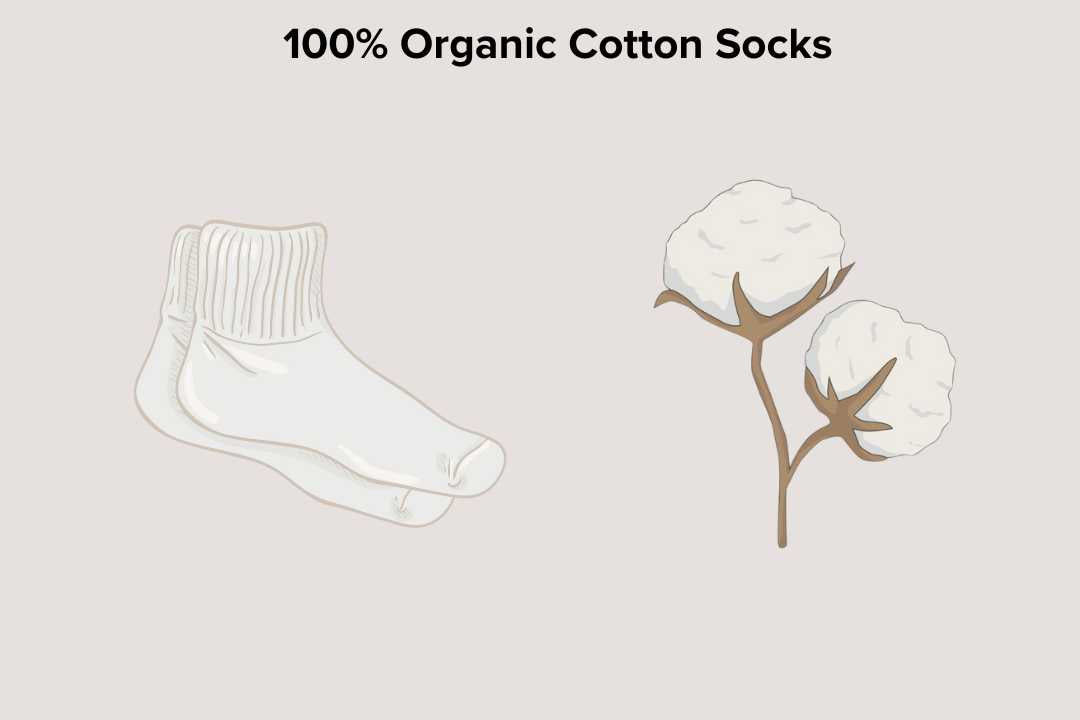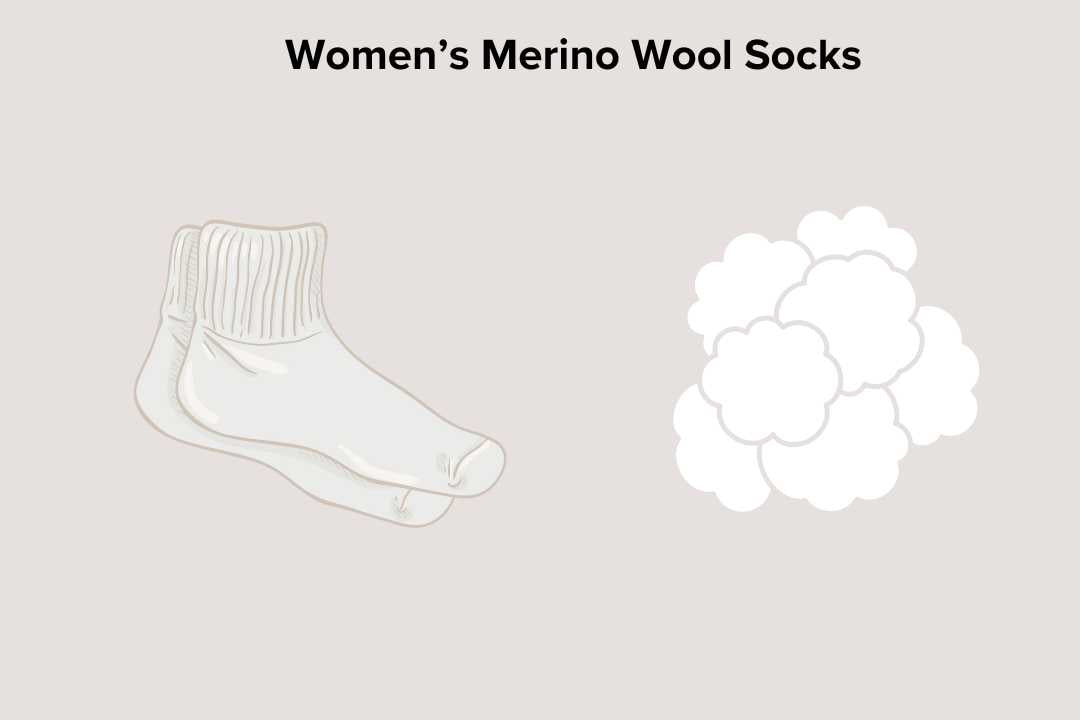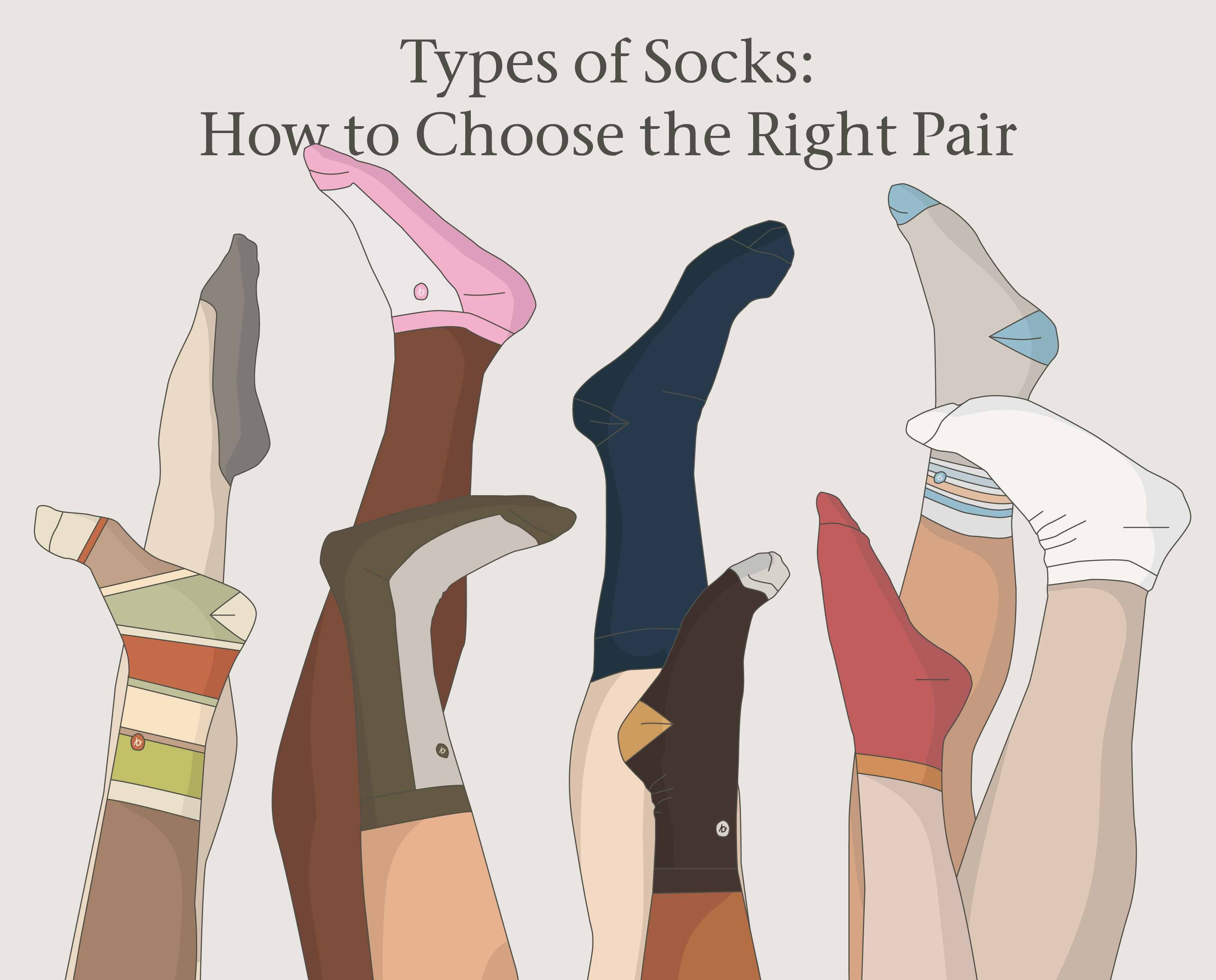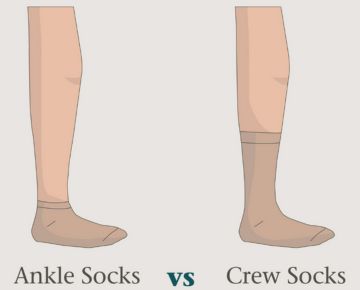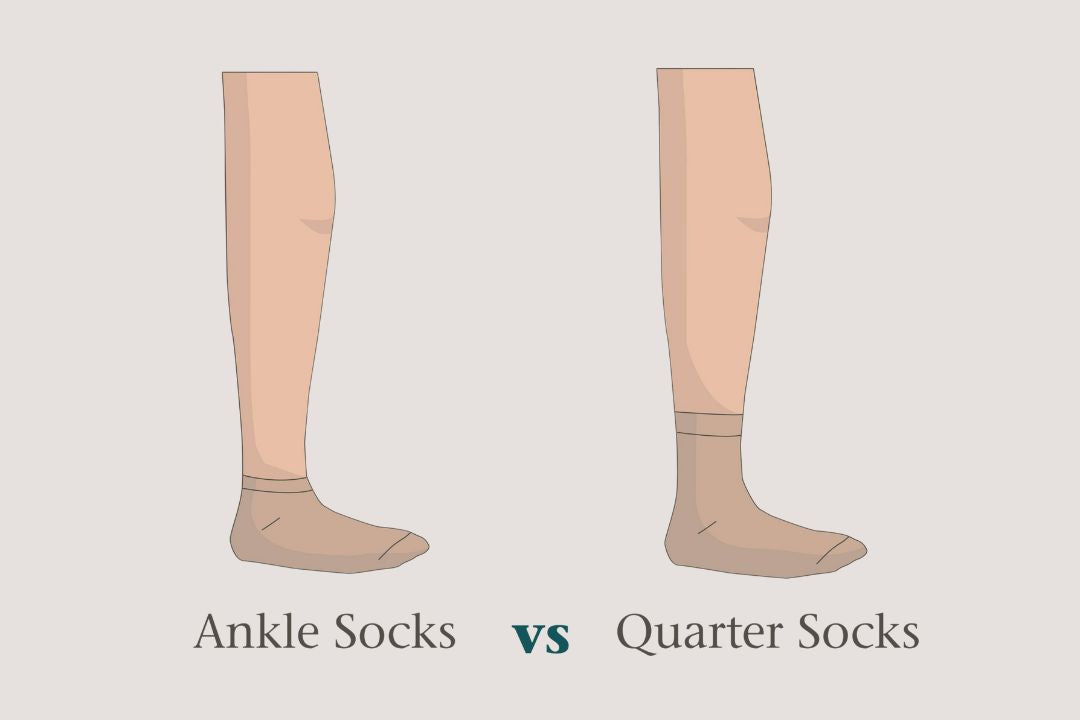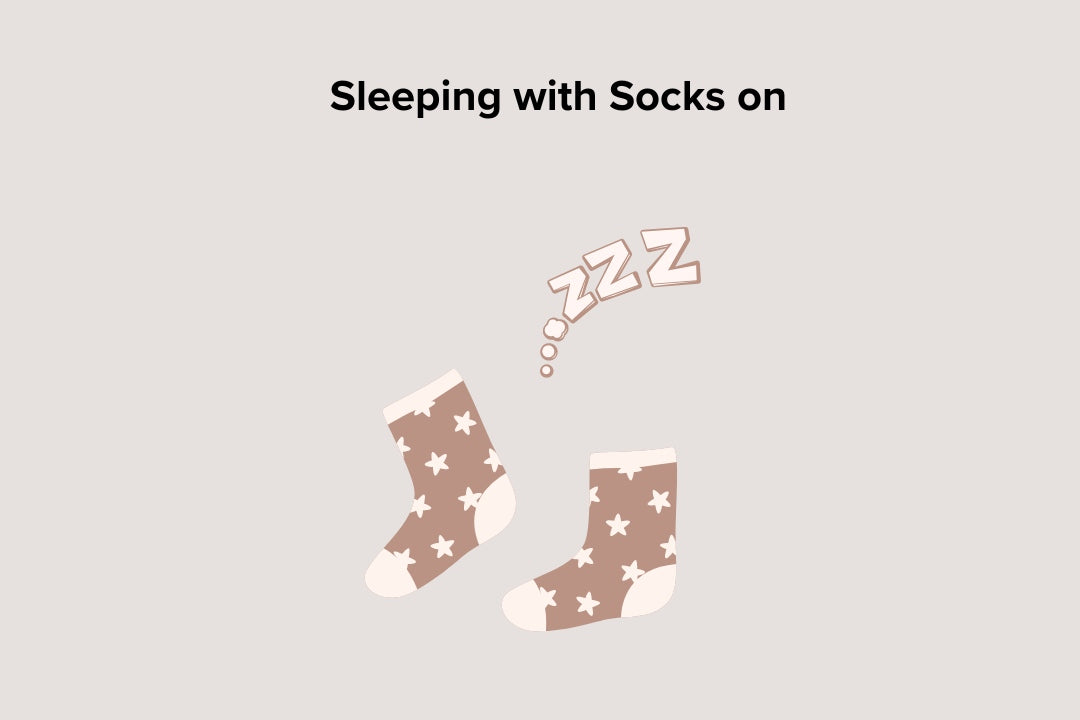
Sleeping with Socks on: How It Can Improve Your Sleep
If you’ve ever wondered whether sleeping with socks on is a good idea, you’re not alone. Many debate whether wearing socks to bed helps them sleep better or makes them too hot. In this article, we’ll explore why sleeping with socks might be beneficial, the connection between feet and sleep, and how the right socks—like organic cotton and Merino wool—can improve your nighttime rest.
The Importance of Temperature Regulation and Sleep Quality
Regulating your body temperature is essential for falling asleep and staying asleep comfortably. Wearing socks to bed can help improve sleep quality by keeping your feet warm and aiding your body in maintaining an optimal sleep temperature.
Temperature Regulation Is Key to Good Sleep
Your body undergoes several natural changes as you prepare to sleep; one of the most critical is your temperature. As nighttime approaches, your core temperature drops, signaling your body that it’s time for rest. This drop in temperature is crucial for falling asleep and staying asleep throughout the night.
If your body struggles to regulate its temperature, falling asleep becomes more difficult. Cold feet can delay your body’s cooling process, making it harder to relax into sleep. Warming your feet with socks helps your body reach its ideal sleep temperature more quickly, enabling you to fall asleep faster and sleep more soundly.
Research shows that even a mere 0.4°C increase in skin temperature during nocturnal sleep can suppress wakefulness and shift sleep into deeper stages. This is especially beneficial for elderly individuals who may experience disrupted sleep patterns. Keeping your feet warm can enhance overall sleep quality by reducing the time it takes to fall asleep and minimizing nighttime awakenings.
So, should you sleep with socks on? The answer is yes, especially if you often experience cold feet at night. Wearing socks can help regulate your body temperature.
Sleep Quality Matters
It’s not just about getting enough sleep—quality matters too. Poor sleep can lead to weakened immunity, irritability, and difficulty concentrating. As the study highlights, recurrent sleep loss can impair glucose metabolism, leading to reduced insulin sensitivity and increased risk of insulin resistance, both precursors to type 2 diabetes. This supports the statement that poor sleep quality not only affects daily cognitive and physical functions but can also increase the risk of chronic conditions like diabetes. When considering is it better to sleep with socks on or off, wearing socks may promote better sleep quality, and overall health.
Key Benefits of Sleeping with Socks on
Sleeping with socks on offers a surprising range of benefits that can enhance your sleep quality and overall well-being. Here’s a breakdown of the key advantages:
Improve Blood Circulation
Wearing socks while sleeping can significantly improve blood circulation.
This is what happens biologically when you wear socks to bed: The warmth from the socks causes your blood vessels to expand, improving circulation to your extremities. This enhanced blood flow helps keep your feet warm, promoting overall relaxation and preventing disruptions in sleep caused by cold or poor circulation.Is it better to sleep with socks on or off for individuals who experience poor circulation or suffer from certain health conditions? Such as diabetes or Raynaud’s disease? The answer is clear: sleeping with socks on can help manage symptoms, improve circulation, and provide a more comfortable and restful night’s sleep.
Regulating Body Temperature
A consistent body temperature is essential for good sleep, and wearing socks helps regulate it throughout the night. When your feet are warm, your body finds it easier to maintain an even temperature, preventing sudden fluctuations that can wake you up. Socks act as a natural thermostat, preventing your body from getting too cold or too hot, which can disturb your sleep cycle. This temperature stability ensures you sleep soundly without the discomfort of temperature changes at night.A study by Ko & Lee further supports this idea, demonstrating the benefits of wearing socks for regulating body temperature during sleep. In a relaxed environment, the study found that wearing socks shortened the time it took to fall asleep by an average of 7.5 minutes, increased total sleep time by 32 minutes, and reduced the number of awakenings by 7.5 times. Additionally, foot temperature remained 1.3°C higher in those wearing socks, which improved sleep quality. Interestingly, while socks improved sleep through localized warming of the feet, they did not cause significant changes in core body temperature, emphasizing that the warmth provided to the feet alone can profoundly impact sleep quality.
Prevention of Night Sweats
It may seem counterintuitive, but wearing socks can help prevent night sweats. By helping to regulate your body temperature, socks reduce the likelihood of sudden spikes in heat that can cause sweating during the night. When your body temperature remains stable, you’re less likely to experience overheating, which is a common trigger for night sweats. Keeping your feet warm ensures your body remains balanced, making for a more comfortable, sweat-free sleep.
Help to Fall Asleep Faster
One of the immediate benefits of wearing socks to bed is that it can help you fall asleep faster. When your feet are warm, it signals to your brain that it’s time to relax and begin falling asleep. This happens because warm feet encourage vasodilation—the expansion of blood vessels—which helps lower your core body temperature. A cooler core temperature is essential for falling asleep quickly. If you often struggle to fall asleep, this simple technique can be an easy and effective way to drift off faster.
Reduce Stress and Anxiety
Wearing socks in bed can also reduce stress and anxiety by providing warmth and comfort. Warm feet promote relaxation, helping to calm your nervous system and make you feel more secure as you prepare for sleep. This calming effect is particularly beneficial if you struggle with stress or anxiety that interferes with your sleep. The sensation of warm feet can signal to your brain that it’s time to relax, reducing tension and helping you fall asleep more easily.
Best Materials for Sleeping Socks: What to Look For
Choosing the right socks for bedtime is essential for a good night’s sleep. Here are the best materials to consider:
- Organic cotton is soft, breathable, and natural, perfect for those with sensitive skin or allergies. Check out our collection of cotton sleeping socks for ultimate comfort.
- Merino wool: Renowned for its temperature-regulating and moisture-wicking properties, Merino wool keeps your feet warm without overheating. Explore our men’s and women’s merino wool socks collections to find your perfect pair.
For more detailed information on selecting the right materials and types of socks for optimal sleep, explore our full article and find your perfect pair!
Who Should Avoid Sleeping with Socks On?
While many people benefit from wearing socks to bed, is it bad to sleep with socks on in specific cases? Yes, it can be:
- People with Certain Skin Conditions: If you suffer from eczema or other skin conditions, wearing socks could irritate your skin. It’s important to consult a dermatologist before making this a regular habit.
- People Who Get Overheated Easily: If you tend to overheat at night or live in a particularly warm climate, sleeping with socks may not be necessary and could make you feel too hot.
Final Thoughts
Sleeping with socks on is a simple yet effective way to improve your sleep quality by regulating body temperature and promoting better blood circulation. It can help you fall asleep faster, stay asleep longer, and even alleviate issues like cold feet or Raynaud’s disease. Choosing suitable materials, such as organic cotton or Merino wool, ensures you stay comfortable without overheating. However, it’s essential to consider your personal comfort level—if you overheat easily or have certain skin conditions, sleeping with socks may not be ideal for you.




